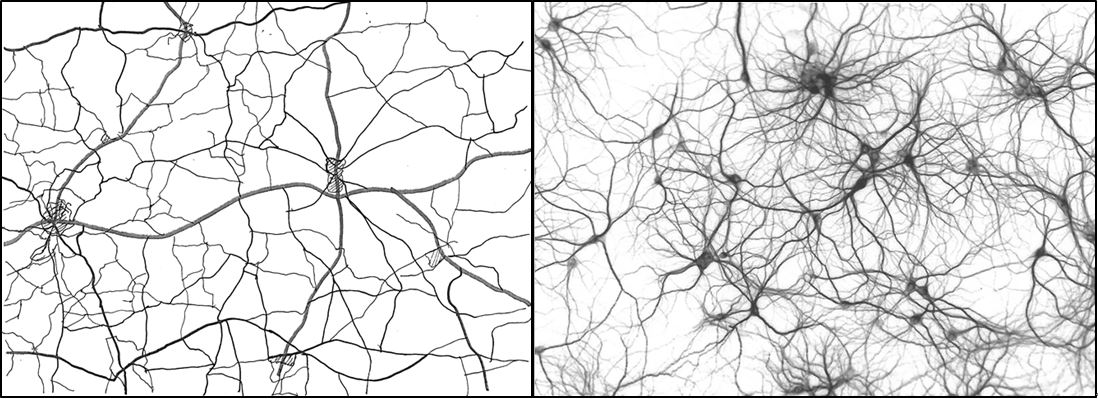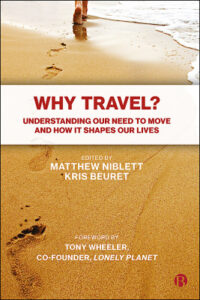‘Transport is key to our collective intelligence’ says new report from the Independent Transport Commission

Connections between villages in rural Suffolk; and between neurons in the human brain. Images courtesey of Alan Baxter.
4th July 2015
The Independent Transport Commission has released a paper by internationally renowned engineer and urbanist Alan Baxter CBE, exploring the important role of travel and transport in nourishing the creative and economic health of cities and nations. In the paper, Connectivity and Cities, Baxter argues that, just as happens with neural connections in the brain, the degree of connectivity we enjoy is crucial for measuring the intellectual power of societies. ‘It is this interchange’, he explains, ‘from many different sources that fuels our collective intelligence.’
In the paper, Baxter examines Britain’s industrial past and its links to the growth of connectivity brought about by successive transport revolutions over the past 180 years including rail travel, bicycles, motor cars, jet aeroplanes, and the containerisation of freight. Not all of these revolutions have had entirely positive effects on connectivity: the mass adoption of private cars, for example, whilst providing enhanced connectivity for many people, has also led to suburban sprawl and feelings of isolation and disconnect within cities.
When looking to the future of transport in the 21st century, Baxter argues that we will have to learn how to best manage transport-related technologies in order to derive the greatest benefits from them. This may be particularly so when thinking about the ongoing sixth connectivity revolution – through new communications technology – in which it is data that moves rather than people or goods. Although it is difficult to predict future technical revolutions, it seems likely that our desire to travel and connect will continue to grow; and the map of Britain looks set to become ever more densely connected, particularly within the larger Southern Britain region, stretching from Burnley to Brighton. This connectivity will only lead to great gains if we can better manage the integration and quality of different modes of transport.
As Baxter’s paper highlights, travel – and the connectivity it brings – has always been a key part of the functioning of our cities and societies. Long ago our human ancestors travelled to hunt and gather food, but even after changing to a sedentary lifestyle, humans have retained the desire to move. Part of this seems to stem from the urge to exchange goods and ideas with others, to experience new things and thus make new connections – not only within the traveller’s brain but between different groups of people. Understanding these fundamental motivations for travel is crucial if we are to understand and better plan for future travel needs and desires, and for the economic success and resilience of our future societies. To this end, the Independent Transport Commission has undertaken the Why Travel? project to explore these fundamental travel motivations from expert perspectives across the arts, sciences and humanities. To find out more about the project, including news stories and expert views, see www.whytravel.org


